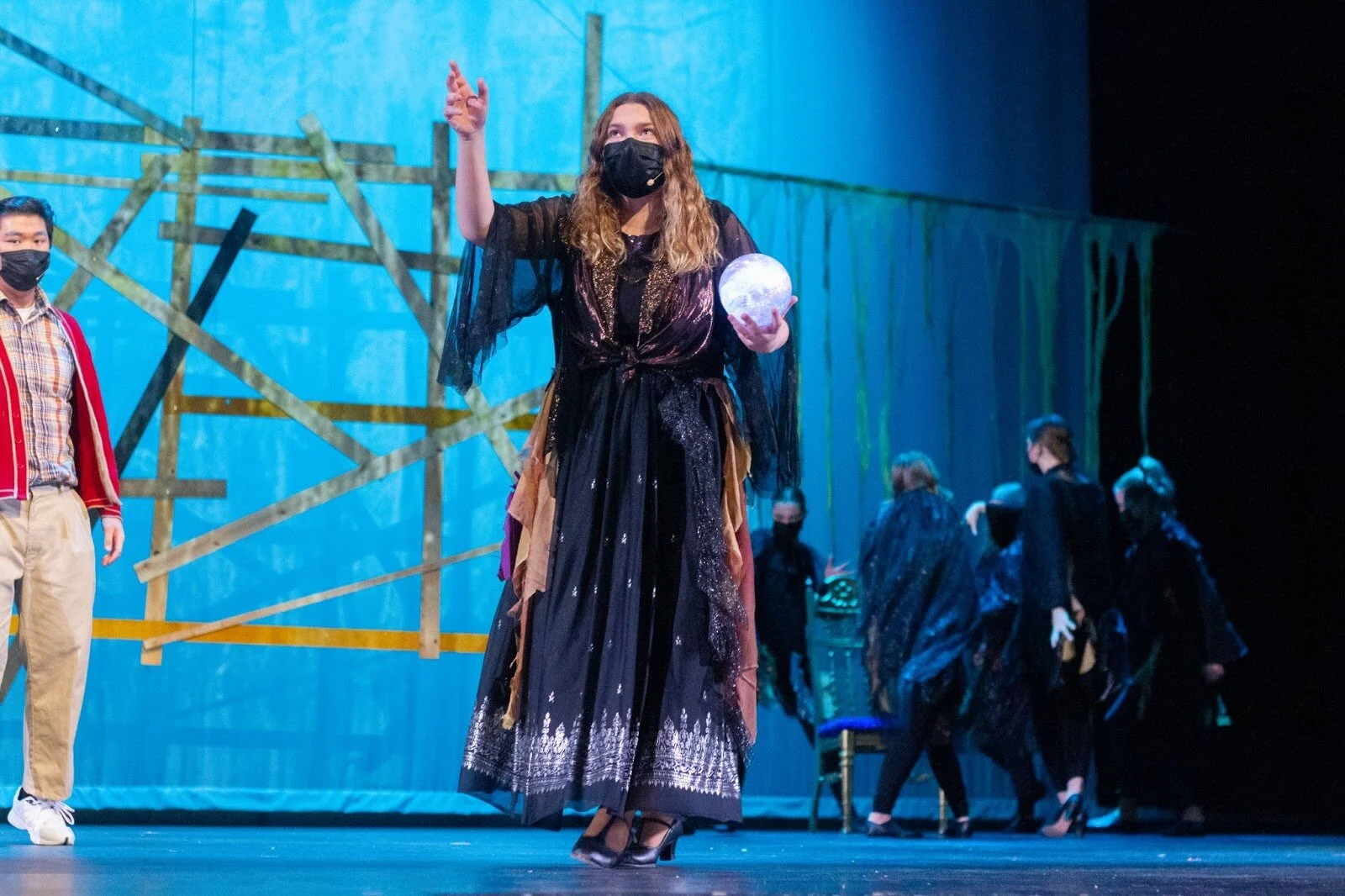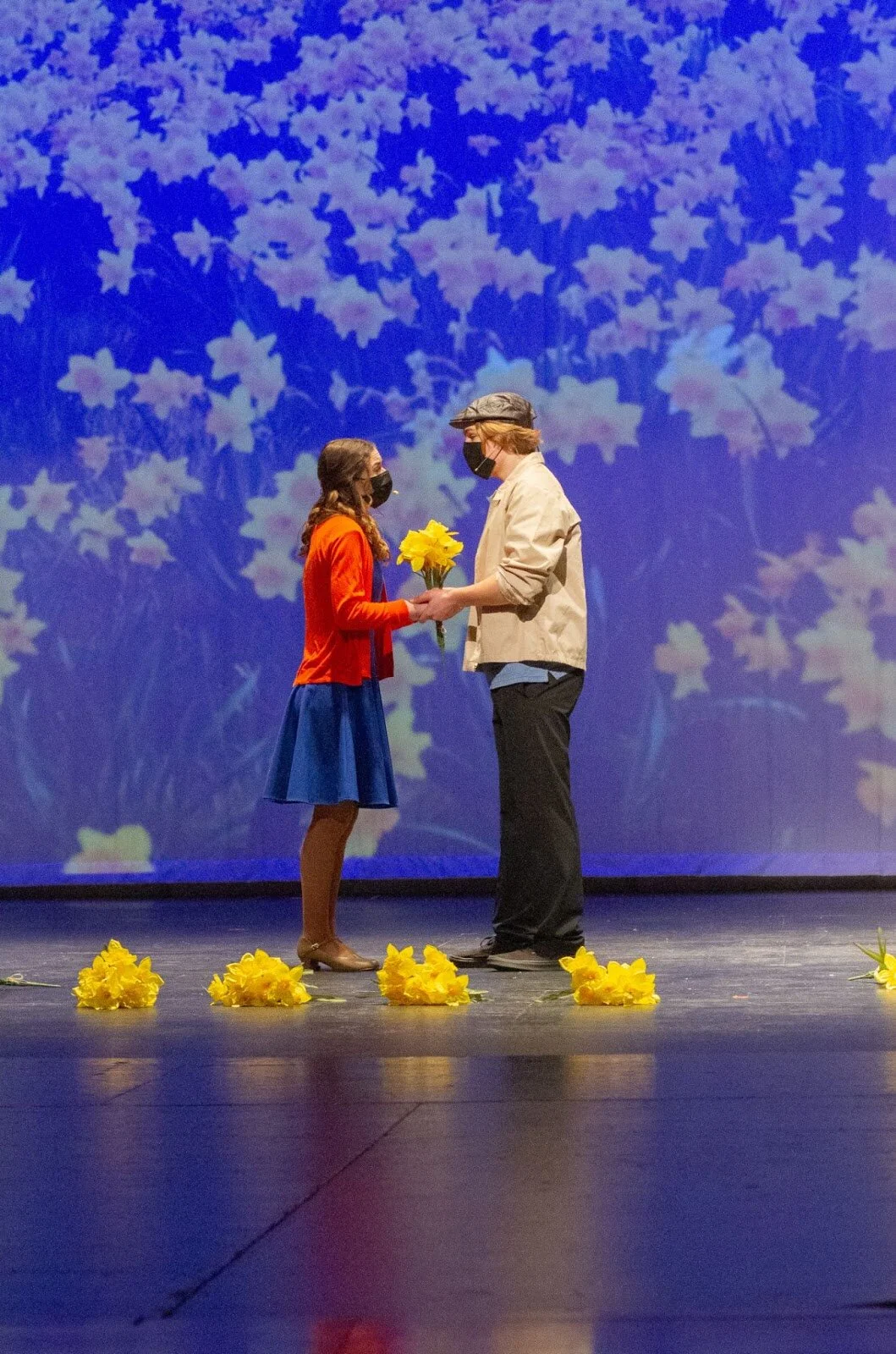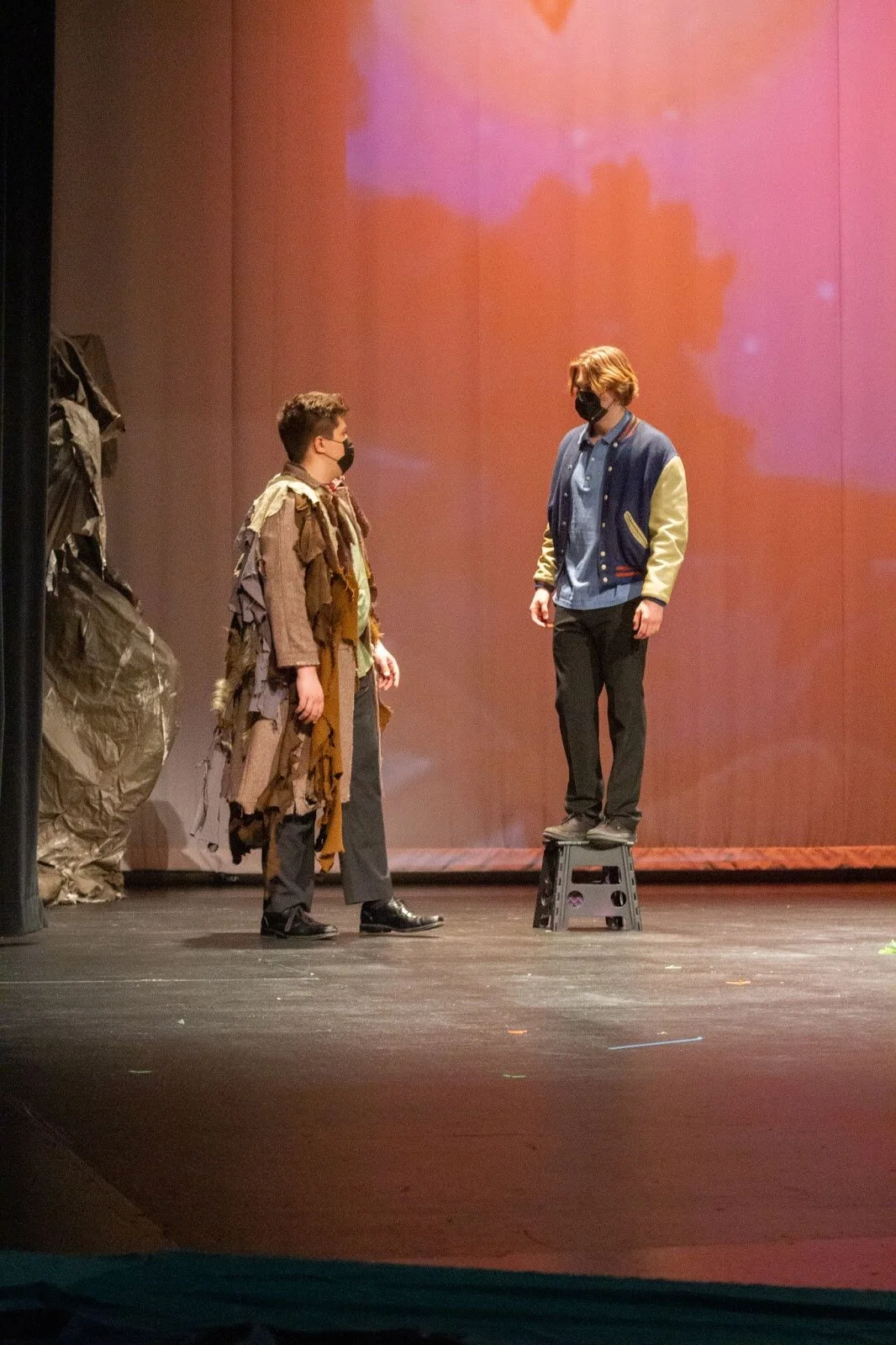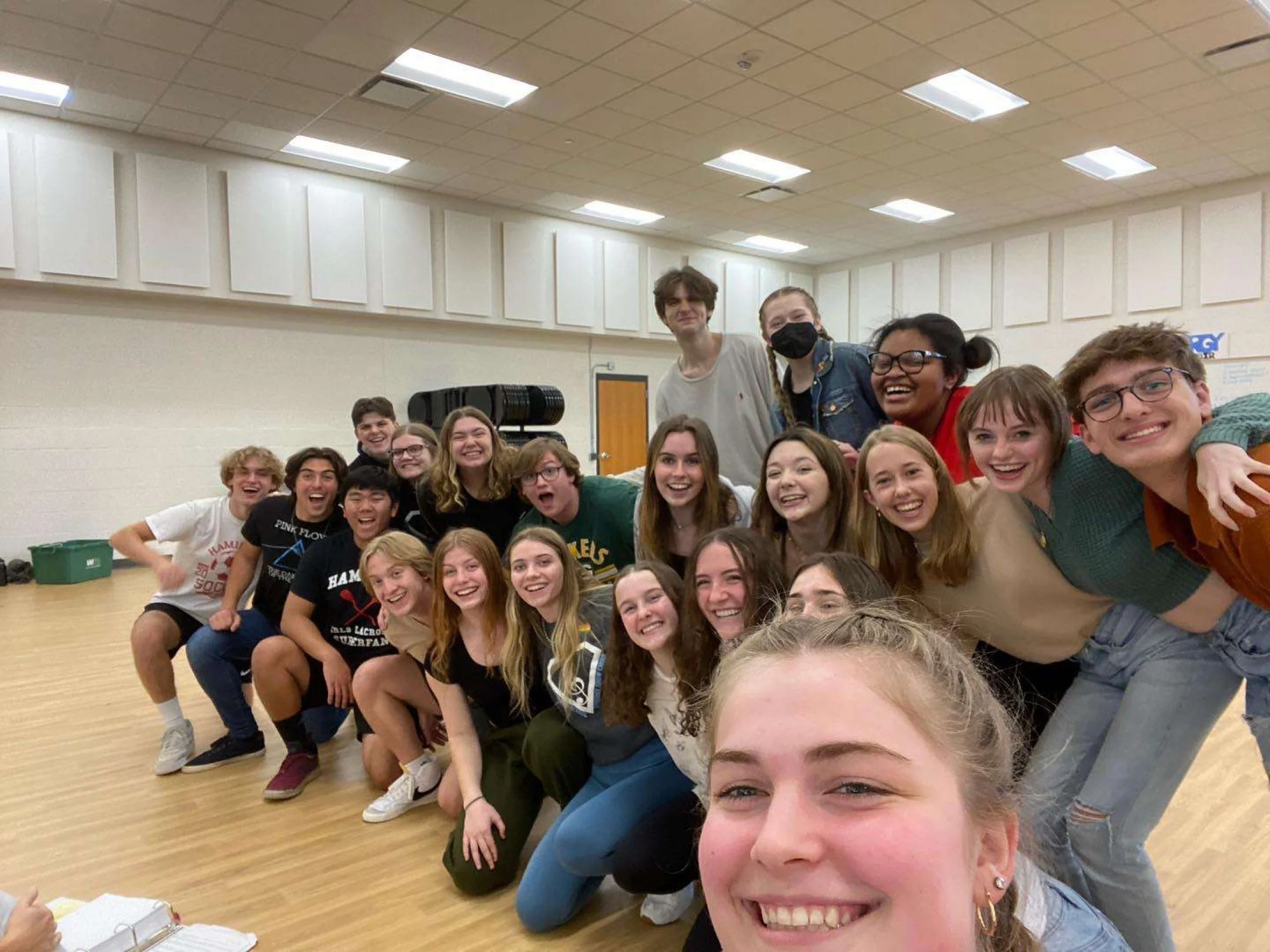Big Fish: The Art of Community
Shannon O’Dwyer
In light of the close of this year's Hamilton Drama production of the musical Big Fish, I thought there would be no better time to review the movie. I’ve asked director Sarah Plamann some of her thoughts about her interpretation of Big Fish. I myself took part in the musical and grew up with the story, so excuse me if my opinions seem exaggerated 一 this show meant a great deal to me and others.
What is the purpose of a story? I grew up with film after film trying to decipher what their messages meant for myself, never realizing how this shaped my own storytelling; after all, film is another medium of storytelling in and of itself. The ability to tell a story can come naturally for some. For Edward, the titular role in Big Fish, his life was told through a series of immaculate stories that intertwined to create a work of art. But the story itself is more than what meets the eye; Big Fish contains lessons that become timeless for all ages, despite it’s outlandishness.
Plot Overview *Spoiler Alert*
The plot follows Edward (Ewan McGregor) through his life in flashbacks mixed with the present where his son, Will (Billy Crudup), struggles to cope with his father’s fallacies. From the very beginning, Edward’s life is an enigma that is filled with all sorts of fantastical characters. He tells about meeting a witch as a child who foretold his death through her glass eye. This encounter with the witch inspired Edward to jump off the deep end into life and milk it for all of its worth. The witch taught him never to fear life, something he hoped to inspire in his son Will as he grew up. Edward believes life is not to be feared; however, his attempts to inspire his son crumble as it only causes Will to turn away.
As Edward grows up, he becomes a small town hero in Ashton, Alabama. He soon outgrows this as he is made aware of a giant lurking in a cave just outside of town limits. Edward bravely goes to greet the giant named Karl, who he then befriends and convinces to leave town with. From there, the duo sets off for the big city in an attempt to make a name for themselves. Edward gets sidetracked and stumbles into the secluded town of Spekter, or “the most well kept secret in all of Alabama.” He is greeted by friendly neighbors without shoes, and a young girl by the name of Jenny (Helena Bonham Carter). Although the town is pleasant, Edward becomes a little unsettled and proclaims he must move on. He joins Karl and finds himself at a bustling circus where he sees the love of his life. However, a disheartened Edward loses her and befriends the circus’ ring leader, Amos Calloway (Danny Devito). He ends up receiving a job in an attempt to find the girl of his dreams.
The rest of the story is further integrated with the present conflict between the elderly dying Edward Bloom (Albert Finney) and his son Will. Will is about to have a son of his own and grows more disturbed at the thought of never truly knowing his father because all he has known is the stories.
The River Between
Despite being the largest role, I don’t believe Edward is the true main character. Although the story may seem to follow his life, the moral and meaning behind it follows the conflict between him and his son and how his son is shaped by his father’s stories. Each story holds a lesson that Edward learned and how it shaped him into the man he became. So however fantastical the story, the core belief never faltered. Meeting the witch taught him how short life is and that no matter the consequences it is best to try everything. Karl taught him about the act of friendship and how to build a lifelong connection with someone. The circus taught him about selflessness and what it means to fully and completely love someone一 to give into someone else. Plamann comments, “For me a good story teller is someone who allows you to forget everything else and just be engrossed in the story.” Storytelling is what brought Edward to life; it turned a simple man into something larger than what he was in attempts to form a connection with his son. When his son no longer saw the values that each story brought, he lost the magic.
However, it is Will who is the true main character in that he holds the real conflict; he is the complete opposite of Edward. Edward is full of life and lust up until the very end, while Will is the character who has lost the magic. The whole plot of the film is to encourage Will to find the magic once again in order to make peace with his father before he passes. Plamann states, “Will is the protagonist. It’s his own inner struggle; it's more about reconciling it in himself. Will has to come to understand things.” The film itself carries a dark overtone (the ingenious work of director Tim Burton) that the viewer can’t help but shake, even when the scene is filled with outlandish wonder. The film argues how when one loses their childhood they can become something stiff and rigid. Will is the personification of a lost childhood, someone who needs to grow and enlighten themselves that fables have more value than may seem. Considering he is the only character who is truly transformed by the end of the film, he is the true protagonist.
How it Ends
Many do not know what makes a good film. Some may argue that if it brings you some amount of joy or clarity then it must be good; others simply say it must have a good plot and talented actors. While these all may be subjective, I believe a good film is something that can bring people closer together after watching it. A good film must be able to stick with people long after even a casual viewing; it must have something that the audience can take away. Big Fish is one of these films with a story that can draw people in with its seductive and elusive plot. It does this by connecting people together in the film: everything is intertwined. While Edward may have lived a rather unexceptional life to his standards, where he becomes something greater is in his ability to connect people to each other. The very last scene of the film views the moments after Edward’s passing as every single character he has ever told of arrives to grieve the loss of their friend. It is here where Will can be seen as a truly changed character as he realizes that his father never told fables, even if his stories were embellished. Plamann views the story as “just another level of the importance of acceptance and unconditional love. I love that Edward had this band of misfits that he's chosen as his family. I can identify with that as a theatre kid. I identified with the love and compassion and acceptance for these people who were deemed unloveable and unacceptable.” By the end, the film accomplishes something I have seen few others do 一 it feels complete. Some stories accomplish so much in so little time that when it ends it feels like you’re at a loss, you don’t know what to feel. Big Fish takes you some place that you didn’t know you needed to go but don’t want to leave once you’re there.











